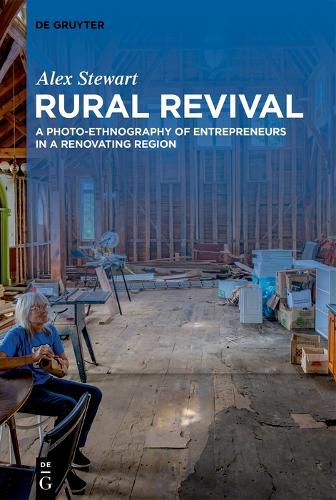Readings Newsletter
Become a Readings Member to make your shopping experience even easier.
Sign in or sign up for free!
You’re not far away from qualifying for FREE standard shipping within Australia
You’ve qualified for FREE standard shipping within Australia
The cart is loading…






When most of their jobs disappear, how do communities survive? In the hard-hit area explored in this book - the Bonavista Peninsula, on the island of Newfoundland - many residents transitioned into "everyday" entrepreneurs such as restauranteurs. Rural Revival explains how these business owners developed a place rich in "entrepreneurial capital." The author draws on six years of ethnographic fieldwork in the area: observations from listening, watching and learning with people in their everyday settings.
Camera work opened doors to people's ventures and their lives. The many photographs in this book bring you deeply into a sense of presence among the people and their natural settings. To interpret the findings from fieldwork, the author draws on rural sociology and economic anthropology. He shows how people transformed the value of once-neglected things in the "house economy" into assets for tourists, leaving the "market economy." He uses theories of "cross-sector partnerships" to show the ways in which regional development is tough to sustain.
$9.00 standard shipping within Australia
FREE standard shipping within Australia for orders over $100.00
Express & International shipping calculated at checkout
When most of their jobs disappear, how do communities survive? In the hard-hit area explored in this book - the Bonavista Peninsula, on the island of Newfoundland - many residents transitioned into "everyday" entrepreneurs such as restauranteurs. Rural Revival explains how these business owners developed a place rich in "entrepreneurial capital." The author draws on six years of ethnographic fieldwork in the area: observations from listening, watching and learning with people in their everyday settings.
Camera work opened doors to people's ventures and their lives. The many photographs in this book bring you deeply into a sense of presence among the people and their natural settings. To interpret the findings from fieldwork, the author draws on rural sociology and economic anthropology. He shows how people transformed the value of once-neglected things in the "house economy" into assets for tourists, leaving the "market economy." He uses theories of "cross-sector partnerships" to show the ways in which regional development is tough to sustain.